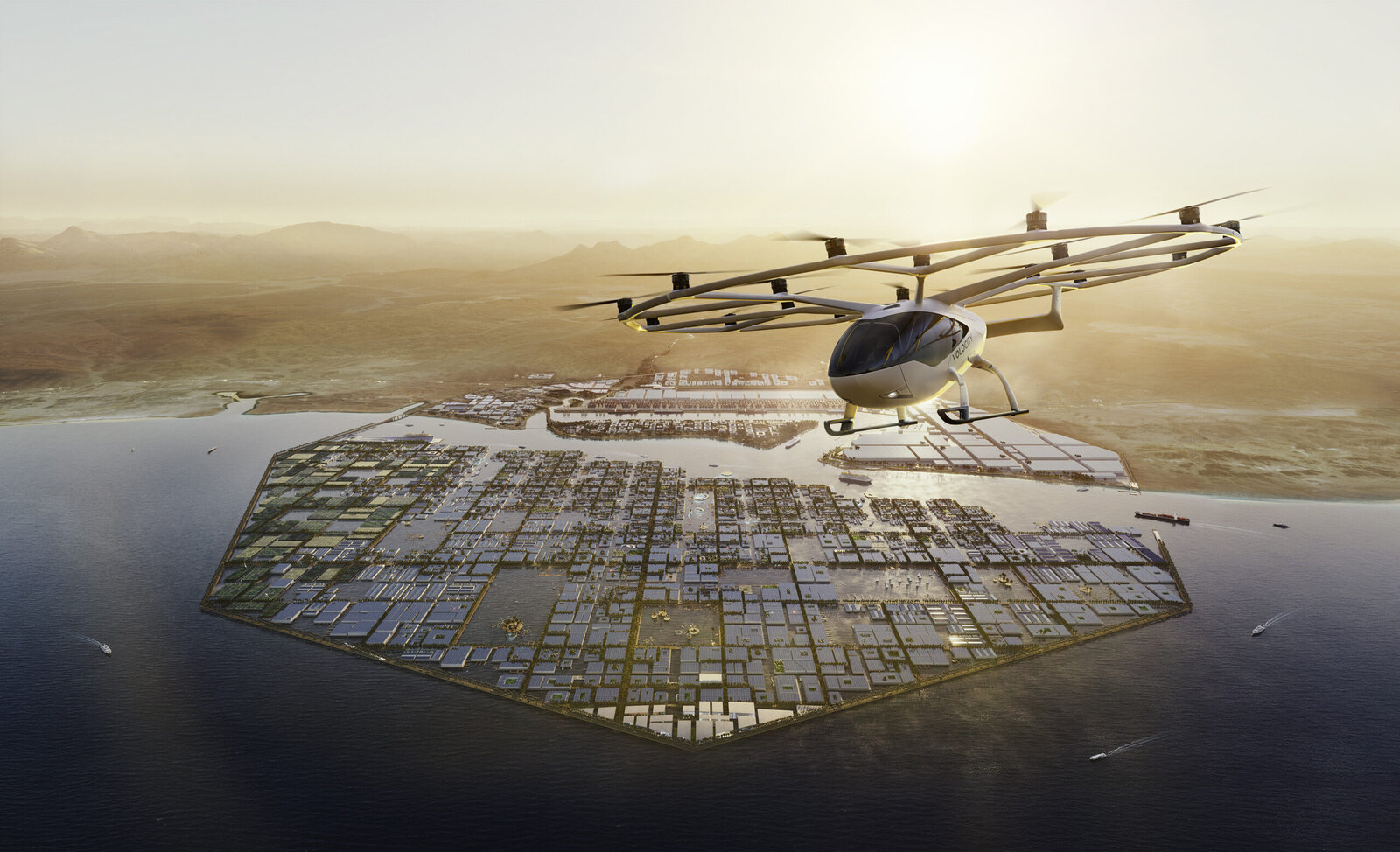Are we finally in the Jetsons era?

eVTOLs are drawing some heavy investment from the region. But what are they? Saudi Arabia’s Neom invested USD 175 mn as part of a series E investment in German electric vertical takeoff and landing (eVTOL) vehicle maker Volocopter, the companies announced in a statement earlier this month. The investment sees Neom take a “significant stake” in Volocopter, and will see the two expand their strategic partnership to roll out an “advanced air mobility industry” in KSA.
Neom has some big plans in store for eVTOLs: Neom and Volocopter signed a joint venture agreement late last year to design, implement, and operate a tailored and customized public vertical mobility system in the smart city. The JV is the sole operator of initial public transit routes across Neom, enabling an open eVTOL ecosystem for mobility services like logistics, emergency response, and tourism.
SOUND SMART- What are eVTOLs and how do they work? eVTOLS are drone-like aircraft that use electric propulsion and large omnidirectional fans to allow them to takeoff vertically and to act like air taxis. They are meant to be energy efficient, quiet, environmentally friendly, and eventually pilotless. Beyond their applications as air taxis, the vehicles are expected to be able to operate on an inter-city basis and even be used for cargo shipping.
The industry is taking off (pun intended): The global urban air mobility market was valued at USD 2.3 bn in 2021 and is projected to reach USD 30.7 bn by 2031. KSA’s national flag carrier Saudia recently signed an agreement with Lilium to purchase 100 electric jets, while UAE-based charter flight operator Falcon Aviation Services is buying up to 35 flying taxis from electric aircraft company Eve Holding, with deliveries expected to start in 2026.
The caveat: eVTOLS require huge amounts of electricity at take off and landing, and need batteries to be swapped and cool in between flights. German eVTOL manufacturer Lilium is aiming to have its aircraft range of 250 km with a battery system that charges to 80% in 15 minutes and 100% within 30 minutes. Petalite estimates that the vehicles need high-capacity 600kW fast-charging capability to serve their duty cycles.
Neom has an advantage: Fast-charging capabilities require city-scale charging infrastructure (which can be costly) if the use of eVTOLS is to be scaled up, according to a McKinsey report. But with a city being built from scratch like Neom, this can be factored into the design, CEO at Volocopter said in the statement.
How many vehicles will be in the skies? Neom and Volocopter agreed on an initial order of 10 VoloCity passenger and 5 VoloDrone logistics aircrafts to commence flight operation within the next 2 years, according to the statement.
Neom’s ambitious plans: Electric air taxis are key to implementing a “multi-modal mobility system powered by 100% renewable energy,” according to its website. NEOM plans to invest in eVTOL vehicle fleets, operations and infrastructure to localize the industry in the kingdom, the statement said.